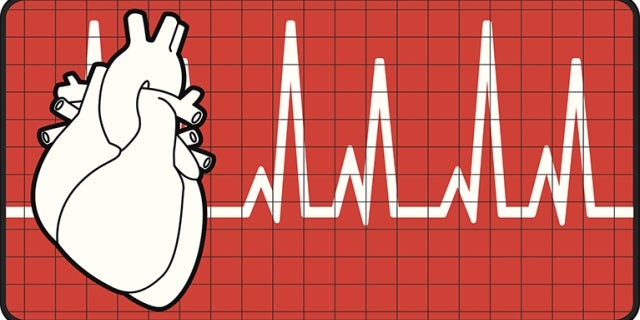It may have been following a high school sports physical or a regular checkup with your doctor when you first heard, “You have a heart murmur.” But what does that mean? Is it serious or something you just need to be aware of?
Oklahoma Heart Institute cardiologist, Dr. Neil Agrawal, consults with patients about this at the Oklahoma Heart Institute Heart Valve Clinic to make sure patients understand their precise condition and what monitoring and follow-up care is needed.
Detectable sound
“A heart murmur is the description of the sound of turbulent (agitated) flow across a valve,” explains Dr. Agrawal. “Normal blood flow across the valve usually does not cause a noise (murmur).”
If you have been told you have a heart murmur, it is more than likely an innocent murmur, or completely harmless. “About 10% of adults and 30% of children (most between the ages of 3 and 7) have a harmless murmur,” says Dr. Agrawal. “The key is to find the harmful murmurs. Hearing a murmur is a very accurate tool to detect valvular heart disease (70% sensitivity and a 98% specificity).”
For that reason, Dr. Agrawal advises all patients to talk to their doctor or a cardiologist if a heart murmur has been detected. “All murmurs need to be evaluated to determine if they are innocent/harmless murmurs or more serious which would require further investigation,” he says.
For those with a heart murmur, which needs to be monitored and managed under the care of the Heart Valve Clinic, proactive management can help improve overall health and longevity. “An untreated heart murmur over time can damage the heart which can lead to serious health issues and death,” warns Dr. Agrawal.
Symptoms
The following symptoms may indicate the presence of a heart murmur, which will need immediate medical attention:
- Shortness of breath
- Leg swelling
- Chest pain
- Passing out
- Reduced exercise capacity
If it is believed your heart murmur indicates a problem with a valve, the Oklahoma Heart Institute Heart Valve Clinic will screen and monitor through tests such as a non-invasive ultrasound of the heart (echo), as well as advanced imaging techniques/procedures like Cardiac MRI, Cardiac CT, and TEE.

